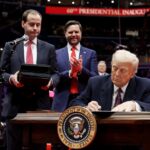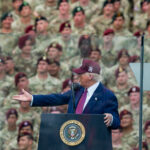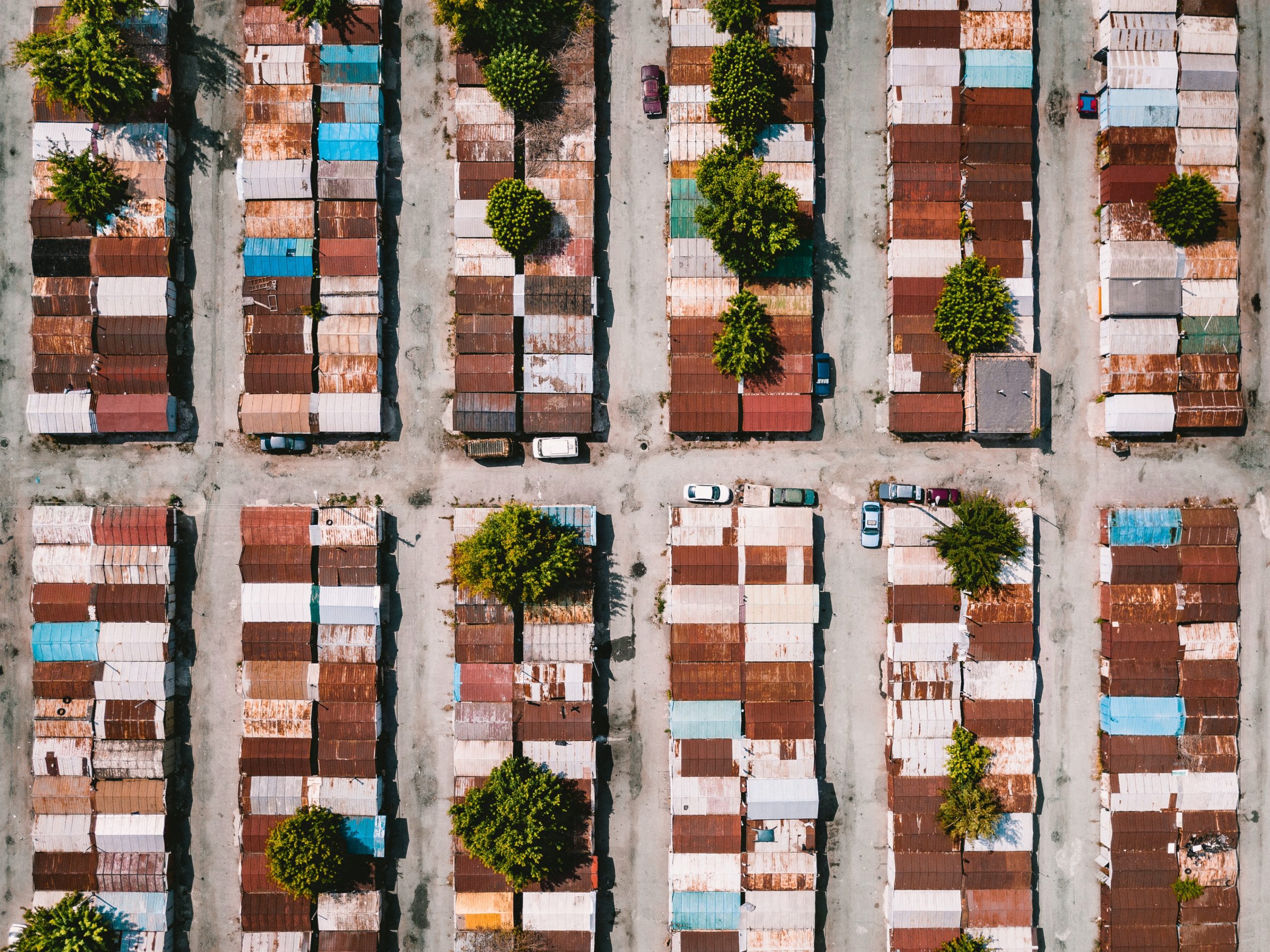America is not special. In the days following the Capitol riots on Jan. 6, there was much public consternation about how such events are meant to be confined to banana republics and the third world and “do not reflect the true America.” This worldview, steeped in American exceptionalism, casts American domestic policies as somehow separate and distinct from those imposed on the rest of the world. In the process, it misses the fact that there really is no material distinction between the way neoliberalism plays out domestically or abroad. The Capitol riots are a predictable consequence of the domestic implementation of the same neoliberal “nation-building” policies the United States has spent the past 75 years imposing in other countries.
The Capitol riots are a predictable consequence of the domestic implementation of the same neoliberal “nation-building” policies the United States has spent the past 75 years imposing in other countries.
Of course, the experiences of people subjected to “nation-building” vary substantially. US imperialism, so often motivated by a racist, violent, and colonial ideology, can manifest very differently across contexts. The comparison here is at a high, systemic level; American society is in the midst of a cycle we’ve seen play out many times across the globe wherein societies subjected to American nation-building will typically experience, in broad strokes, a fairly predictable pattern.
It usually plays out like this: A region in which the US business class has major interests experiences some form of socio-economic disruption, such as a natural disaster, political unrest, armed conflict, or economic crisis. Citing threats to American security or economic interests, the US government and its allies engage in indirect military intervention through the distribution of funding and weapons to local military, paramilitary, and police forces. Sometimes the military intervention is direct: US military personnel are deployed to the region to provide security and reassurance. Targeted military operations are carried out. Occasionally the US military invades the country in question.
Through this military buildup and the securitization of government operations, the US federal government and its local allies attempt to keep a lid on social unrest, allowing corporate interests to invest in the area and operate unencumbered. Infrastructure development contracts are awarded to politically connected American corporations. These contracts charge inflated prices for work that is substandard, if it is done at all. Corporate profits and stock prices rise as a new frontier for foreign investment is opened up.
In the name of “structural adjustment” and citing the need for economic recovery and growth, neoliberal economic reforms are rammed through as a form of economic shock therapy, imposed by the IMF, World Bank, and other US aligned institutions. This further opens the area for corporate economic exploitation. Government services are privatized and consolidated in the hands of the politically connected. Health services, education, and economic opportunity for working class people are eroded leading to increasing alienation and growing distrust of the government.
These policies massively benefit business elites and political insiders. While countries that are subject to US-led nation-building are nominally democracies, meaningful political participation and economic mobility for the masses is a farce. The political class and the ultra-wealthy become synonymous.
Working class people subjected to this nation building program increasingly hold their government in contempt. A feeling that American corporate interests are the true controllers of national policy grows; populist radicalism spreads owing to the widespread belief that the system is rigged to benefit only a small caste of wealthy elites. Unrest grows as both coherent political opposition groups and extremist movements take to the streets and are crushed by ever more militarized police. Militia groups, many of them preaching a mix of religious, nationalist, and ethnic supremacy, proliferate. As tensions rise, so does the militarized response. The US deploys further military assets to the area in order to quell unrest, show resolve, and ensure the continued stability of business-friendly political and economic structures.
While this pattern is one that has played out time and again in countries where the United States has wielded its influence, it is important to understand that this is a pattern consistently seen in the United States itself. Institutions and infrastructure necessary for a fair and just society are gutted, the economic and political gulf widens, and the government response is increasingly one of militarized solutions, pearl clutching about “civility,” and a staunch refusal to bring about systemic change. Outside of lip service, the government does not implement the structural changes necessary to ensure the basic living conditions for working class people, including access to public health services and education, as well as opportunities for meaningful economic and political participation. Voices that call for non-militarized responses to unrest are dismissed as naive, politically suspect, or both. Escalating armed challenges to the state are met with a surge of troops to keep immediate order, but nothing about the underlying economic order ever fundamentally changes.
While the events of Jan. 6 were horrifying because of the overtly fascist and white supremacist nature of the rioters, it is also critical to understand them as only the latest manifestation of an established and accelerating pattern in which structural change is cynically promised and reneged, alienated people mobilize and take direct action, and are met with a massive militarized response. Until now, this activity has largely been carried out by activists for climate, economic, and racial justice. That this type of mass direct action is now coming more forcefully and publicly from xenophobes and fascists indicates that the United States is moving into a more precarious and dangerous phase of the cycles we’ve seen elsewhere.
This is a moment for transnational solidarity: American workers must understand that they, too, are victims of US-led nation building policies that have wreaked so much misery abroad. “Nation-building,” as a concept, needs to be reclaimed as the holistic idea that it should always have been. True nation-building is about more than military stability, it requires basic human services like access to clean water, healthcare, education, economic opportunity, and justice. To do otherwise would inflict the same immiserating nation-building policies on the American working class that the US has imposed on people abroad. Both deserve so much better.
Matt Currie is a Toronto-based public school teacher, community educator, and grassroots organizer. He is a member of Foreign Policy Generation.














